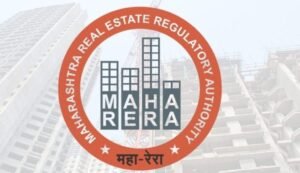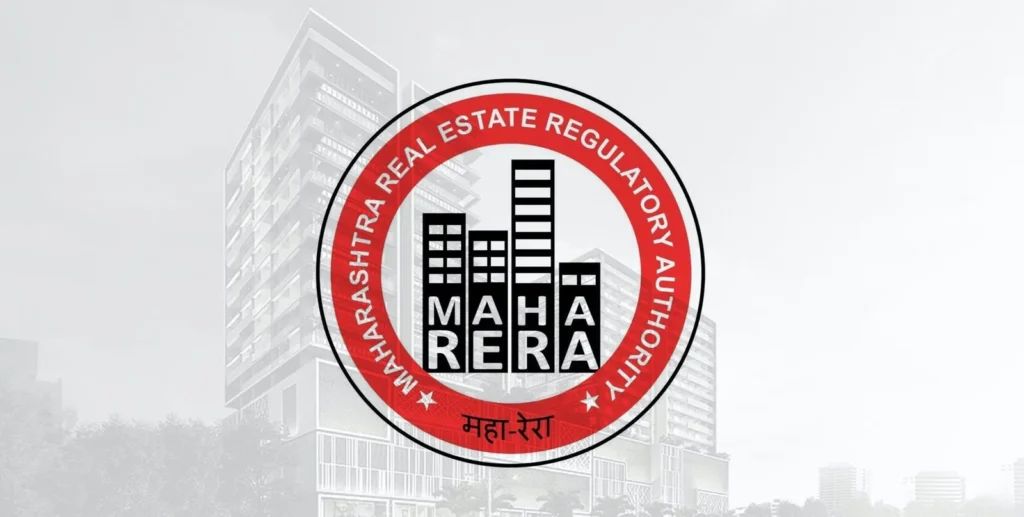 The real estate industry has long been criticized for its lack of transparency and accountability. However, the introduction of the Real Estate (Regulation and Development) Act, 2016 (RERA) has transformed the sector, ensuring transparency, fairness, and professionalism. MahaRERA, the Maharashtra-specific implementation of RERA, has emerged as a powerful tool for developers to build trust and increase sales in the competitive real estate market.
The real estate industry has long been criticized for its lack of transparency and accountability. However, the introduction of the Real Estate (Regulation and Development) Act, 2016 (RERA) has transformed the sector, ensuring transparency, fairness, and professionalism. MahaRERA, the Maharashtra-specific implementation of RERA, has emerged as a powerful tool for developers to build trust and increase sales in the competitive real estate market.
In this blog, we’ll explore how MahaRERA compliance strengthens trust between developers and buyers, enhances project credibility, and ultimately drives sales.
Why Trust is Crucial in Real Estate
Real estate transactions often involve a significant financial commitment, making trust a critical factor for buyers. In the past, the lack of accountability and delayed project deliveries led to widespread skepticism among buyers. This mistrust resulted in hesitant investments and stagnated sales.
MahaRERA has addressed these challenges by creating a framework that enforces transparency, accountability, and fair practices. Developers adhering to MahaRERA compliance signal their commitment to these principles, which reassures buyers and encourages investment.
The Role of MahaRERA in Building Trust
1. Transparency in Project Information
MahaRERA mandates developers to disclose key project details, such as:
- Approvals and permits obtained.
- Construction timelines.
- Financial planning and fund allocation.
This transparency allows buyers to make informed decisions, reducing uncertainties and building trust in the developer’s credibility.
2. Adherence to Timelines
MahaRERA requires developers to declare project completion dates and adhere to them. Non-compliance results in penalties, ensuring accountability. For buyers, this eliminates the fear of delayed possession, fostering confidence in the developer’s reliability.
3. Escrow Accounts for Financial Discipline
Under MahaRERA, developers must deposit 70% of project funds into a dedicated escrow account, ensuring these funds are used solely for project development. This practice prevents fund diversion and ensures project continuity, which enhances buyer trust.
4. Dispute Resolution Mechanism
MahaRERA offers a structured and time-bound grievance redressal system. Buyers can file complaints for project delays, misrepresentation, or quality issues, knowing that MahaRERA will intervene and resolve the matter efficiently. This assurance strengthens buyer confidence in the system.
How MahaRERA Compliance Boosts Sales
1. Enhanced Market Credibility
Projects registered under MahaRERA carry an official registration number that must be displayed on all promotional materials. This registration adds legitimacy, making the project more appealing to buyers. Developers gain a competitive edge as buyers prioritize registered projects over unregistered ones.
2. Improved Buyer Confidence
Buyers are more likely to invest in MahaRERA-registered projects because they are assured of regulatory oversight, timely delivery, and quality standards. This increased confidence directly translates into higher sales.
3. Streamlined Marketing Efforts
MahaRERA compliance simplifies the marketing process. Developers can focus on promoting project benefits without concerns about legal complications or buyer skepticism. This clarity helps attract a larger pool of potential buyers.
4. Better Financial Planning
By adhering to MahaRERA’s financial discipline requirements, developers can manage project funds efficiently, ensuring smooth execution. Well-executed projects lead to satisfied customers, positive word-of-mouth, and repeat business.
5. Long-Term Reputation Building
MahaRERA compliance positions developers as trustworthy and reliable professionals in the industry. This reputation not only boosts sales for current projects but also enhances the developer’s brand value for future ventures.
MahaRERA Success Stories
Case Study 1: Timely Delivery Builds Buyer Loyalty
A developer in Pune successfully completed a residential project six months ahead of the MahaRERA-stipulated deadline. The adherence to timelines and transparent updates attracted more buyers, leading to 90% of the units being sold before completion.
Case Study 2: Dispute Resolution Restores Trust
A MahaRERA-registered project faced delays due to unforeseen circumstances. Buyers filed complaints, and MahaRERA intervened, facilitating a solution between the developer and buyers. The swift resolution restored buyer trust, resulting in additional sales for the developer’s subsequent projects.
Key Takeaways for Developers
To leverage MahaRERA compliance as a tool for building trust and boosting sales, developers should:
- Prioritize Transparency: Regularly update project details on the MahaRERA portal and maintain open communication with buyers.
- Stick to Deadlines: Deliver projects on time to establish credibility and attract future buyers.
- Ensure Financial Discipline: Use funds responsibly and provide clear financial statements.
- Promote MahaRERA Registration: Highlight the project’s MahaRERA registration in marketing campaigns to reassure buyers.
- Address Complaints Promptly: Use MahaRERA’s grievance mechanism to resolve issues swiftly and maintain buyer satisfaction.
Conclusion
MahaRERA compliance is more than a legal requirement; it is a powerful strategy for building trust and boosting sales in the real estate sector. Developers who embrace MahaRERA’s principles of transparency, accountability, and discipline position themselves as industry leaders. For buyers, MahaRERA ensures that their investments are secure and their concerns are addressed.
At BrightNest Realty, we specialize in guiding developers through MahaRERA compliance, ensuring their projects align with regulatory standards while enhancing their market appeal. Whether you’re a developer looking to boost sales or a buyer seeking a trustworthy investment, MahaRERA compliance is the key to success in today’s real estate market.


